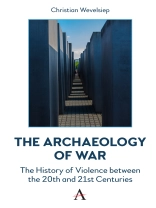The twentieth century holds many titles that emphasize the extraordinary. It was a century of totalitarianism, but also one of betrayal, an age of extremes and the incomprehensible. Betrayed, that is, at the mercy of unrestrained violence, were not only the people themselves, but also, as it were, the idea of the human being. For up to a certain point, one could weigh oneself in an unfounded security of an inner connection between people. As is well known, such certainties were knocked out of hand in that century. Many situations, many images, motifs and sources can be named for this experience of unbounded violence, which now, at the beginning of the twenty-first century, requires new forms of transmission. In an era flooded with images, however, attention is more difficult. One has to embark on a search for traces; not because the sources are lacking, but because the form of inscription in history is problematic. This search for clues leads directly to the present monograph.
Table des matières
Introduction: Understanding the Violence; Part I Violence and History, Chapter One War as ‘Becoming’: On the Ontology of Conflict ; Chapter Two The Embodiment of the Victim: Phenomenology of Violence Suffered; Part II Dark Spots in History, Chapter Three Colonial Violence: The Dark Sides of the Modern State; Chapter Four Hate: On the enigma of divisiveness in the age of the total; Chapter Five Disastrous Violence: Ideologies; Chapter Six Politics, Violence and Sacrality; Chapter Seven The Frightening Love of War; Part III Between the Twentieth and Twenty-First Century: The Worldview of Concern; Chapter Eight The Valorative Space in Times of War; Chapter Nine What Does ‘Learning from History’ Mean? On the Implicit Pedagogy of History ; Chapter Ten War Again? The Contribution of Philosophy to the Phenomenon of War ; Chapter Eleven From the Worldview of War to the Worldview of Concern; Bibliography; Index
A propos de l’auteur
Christian Wevelsiep, born on 18 November 1969 in Bochum, Germany, studied special education, philosophy and sociology. Since 2009 he is lecturer of political sociology at the European University Flensburg. He specialises in political theory, history and philosophy, main topics being the history and theory of violence.












